By By David Sadler — globeecho.com — Lebanese President Michel Aoun reviewed the measures that will be adopted to implement the plan for the return of Syrian refugees in phases. According to a statement by the Lebanese presidency, Aoun chaired a meeting today at Baabda Palace, which was attended by Minister of Foreign Affairs and […]
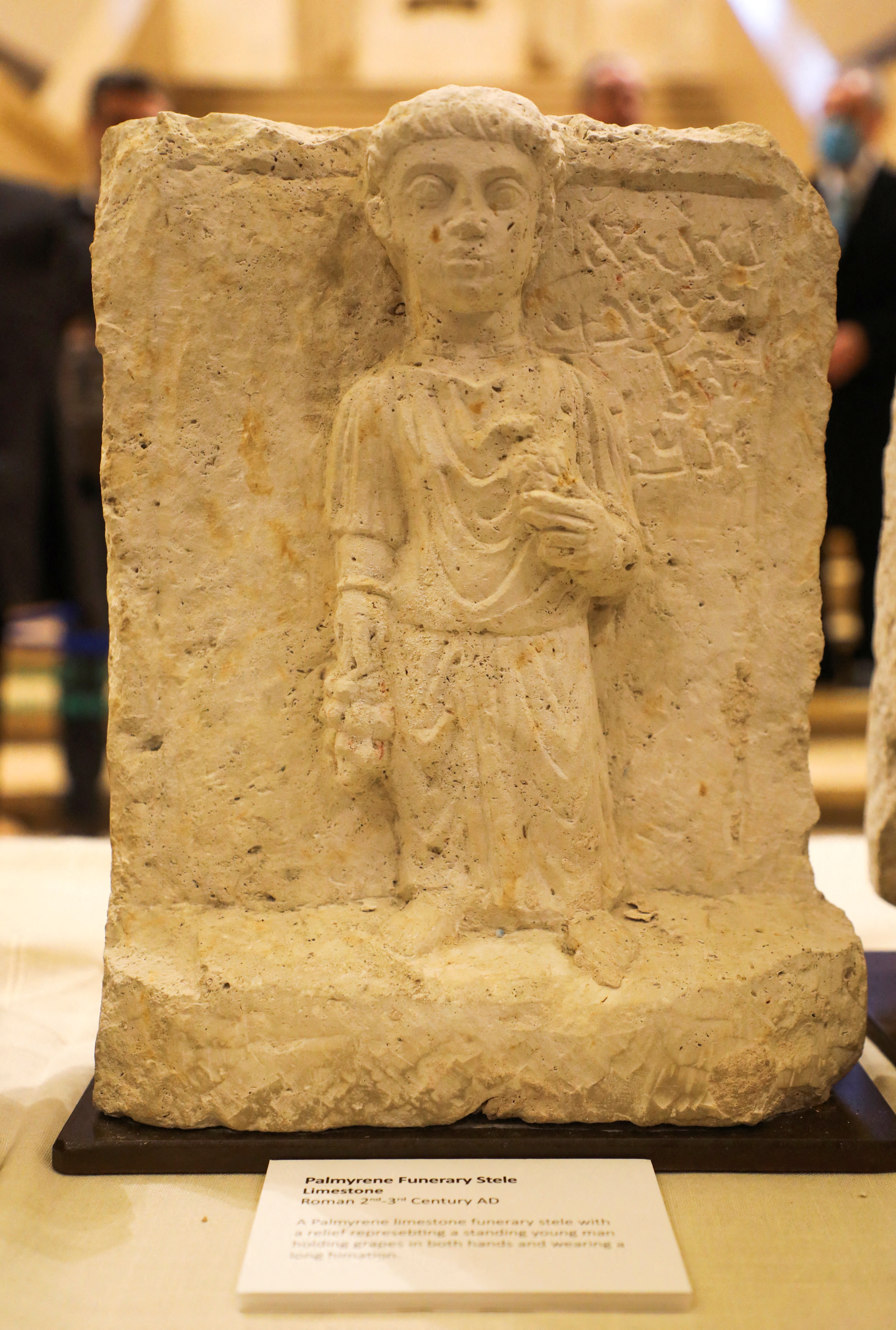
by thenationalnews.com — US authorities have issued an arrest warrant for a Lebanese collector who for years advised investigators trying to clamp down on the trafficking of stolen antiquities. Georges Lotfi, 81, has been charged by a New York court with 24 counts of criminal possession of stolen property. His address is listed as a post box in Tripoli, Lebanon, but Mr Lotfi also has properties in New York, France and elsewhere. According to the affidavit filed earlier this month, Mr Lotfi had served as a “valuable source of information on numerous antiquities-smuggling investigations”. “Over the years, the defendant has provided me with detailed information about looting practices globally,” Robert Mancene, a Homeland Security special agent, said in the affidavit.
Mr Mancene said Mr Lotfi “has demonstrated not only his intimate knowledge of the illegal trade in antiquities from the Middle East and North Africa, but also his acute awareness of the hallmarks of looted antiquities from his extended involvement in buying, selling, or otherwise dealing in antiquities — thereby revealing to me his awareness of the stolen nature of his own antiquities”. ‘They turned against me’ Mr Lotfi also had a long-standing relationship with Matthew Bogdanos, head of the Manhattan district attorney’s Antiquities Trafficking Unit (ATU). Mr Lotfi said he was “not a smuggler” but “a collector”. “I was fighting with them for 10 years to stop illicit trading and they turned against me,” he told the New York Times. The investigation by the ATU began indirectly in July 2017, Mr Mancene said.
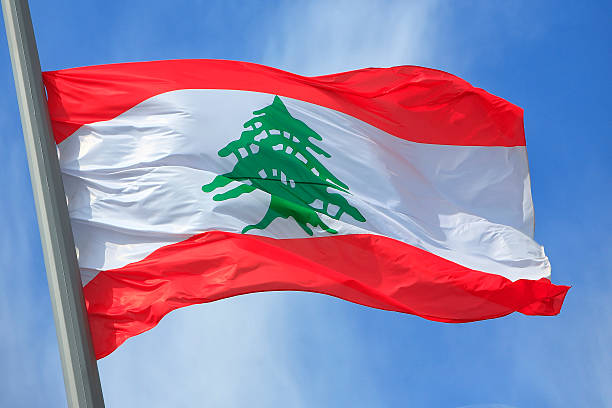
by english.aawsat.com —– Nazeer Rida — Lebanese political blocs have kicked off “cautious” efforts to discuss potential presidential candidates to succeed Michel Aoun, whose term ends in around 80 days. In general terms, the president is expected to be “open” to all parties and blocs, enjoy “internal political consensus”, and be able to address the international community and put Lebanon “on the right track to recovery”. The presidential election needs the attendance of two thirds of the 128-member parliament to meet the desired quorum. A candidate is declared a winner after reaping over two thirds of votes in the first round. This usually demands agreements between various political blocs, rivals and allies alike. Discussions to reach such agreements started about a month ago.
MPs of the civilian protest movement for change have in recent weeks discussed the characteristics of potential candidates without delving into names, said sources monitoring the discussions. Some of the 13 Change lawmakers are in contact with opposition political forces and others to garner their views and attempt to reach possible understandings over the elections, the sources told Asharq Al-Awsat. The Change MPs are in agreement with traditional political forces over some issues and disagreement over others, namely that the president must not be a partisan or military figure. The latter position clashes with the Lebanese Forces that supports the nomination of army commander Joseph Aoun if consensus is reached over him.
Some Change MPs agree with the LF, Kataeb and Progressive Socialist Party over a candidate who is “sovereign” – meaning a figure not affiliated with Iran – and supports the independence of the judiciary, which they view as the foundation of any state seeking transparency and accountability and that wants to combat corruption. They are also aspiring for a president who would approve the financial and economic recovery plan. The Change MPs have stressed their openness to all non-partisan figures. Change MP Ibrahim Mneimneh told Asharq Al-Awsat that the discussions have not been completed yet. He said he wants the election of a president who will pursue reform and has a political and economic vision that “gives hope to the people.”
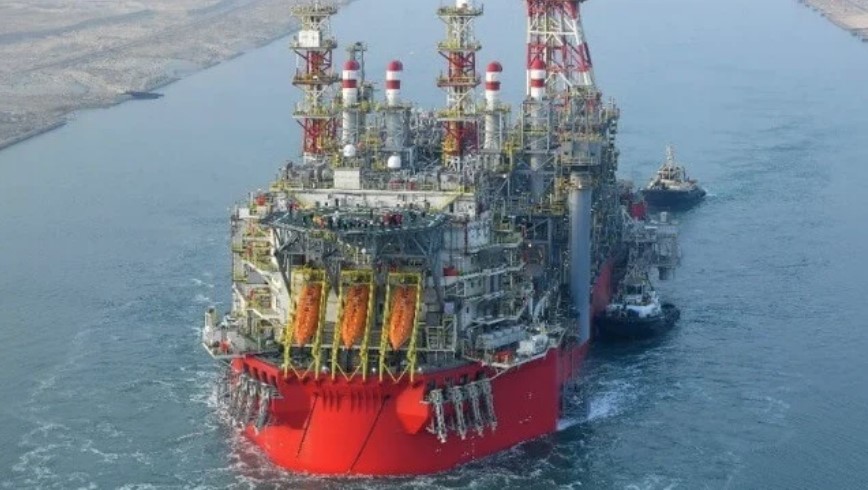
by middleeasteye.net — The Lebanon-based buyer of the first grain shipment to depart Ukraine since Russia’s invasion has refused to purchase the cargo, according to Ukraine’s embassy in Beirut. The buyer has raised concerns over the quality of the grain, due to the five-month delay in its shipment. The charterer is now looking for a new buyer inside Lebanon or the Middle East, an Istanbul-based ship agent with knowledge of the matter told Middle East Eye. “The ship owner is not happy about the case. It’s been six months of waiting. That is a big cost,” the shipping agent told MEE on condition of anonymity. Last week, the Sierra Leone-flagged Razoni, loaded with about 26,000 tonnes of corn, became the first ship to set off from a Ukrainian port since the Russian invasion. The vessel left under the safe passage of a UN-proposed deal struck between Moscow and Kyiv and brokered by Turkey. As part of the agreement signed last month, a joint command centre (JCC) was set up in Istanbul with personnel from the United Nations, Russia, Ukraine, and Turkey to monitor the shipments of foodstuffs.
Russia and Ukraine account for nearly a third of global wheat exports and the war in Ukraine has led to a worldwide food and energy crisis. The effects of the shortages have been particularly devastating in the Middle East. In Lebanon alone, Russia and Ukraine accounted for more than 70 percent of wheat imports before the war. Food inflation in the tiny Mediterranean country hit 122 percent this year. The wheat shortage in Lebanon has forced people to wait long hours outside of bakeries for subsidised bread, with brawls breaking out among frustrated citizens. The shipping agent said it was possible the Lebanese buyer was trying to renegotiate the price. The Razoni was set to arrive in Lebanon on Sunday, but is currently anchored off Turkey’s southern coast.
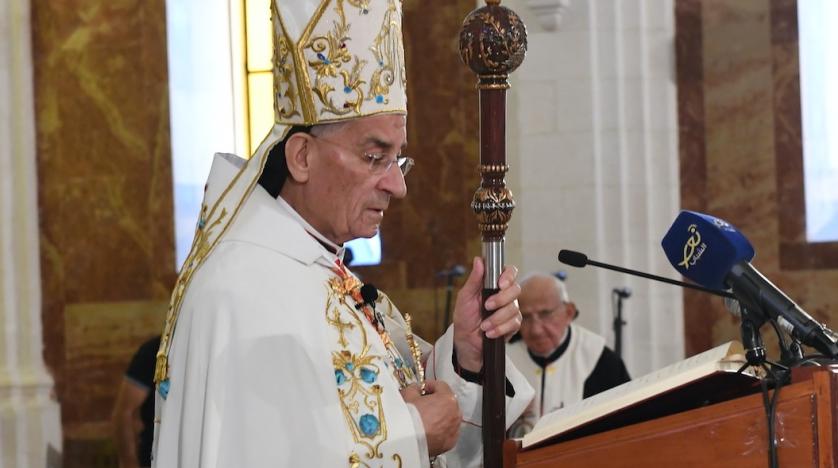
Asharq Al-Awsat — Maronite Patriarch Beshara al-Rahi said on Sunday it is “shameful” that Lebanese politicians have yet to form a new cabinet nearly three months after elections, blaming their chronic feuding for the country’s “decay”. In his weekly sermon, Rahi drew an unfavorable comparison between Lebanon’s progress in securing a maritime boundary deal with Israel and the paralysis in domestic politics. “Isn’t it shameful that authorities make efforts to reach an agreement with Israel on maritime borders but refrain from forming a government? Has it become easier for them to agree with Israel than to agree on a government among the Lebanese?” he said. “Isn’t the split in political power in Lebanon, and of the parties… the basis of the (country’s) political, economic, financial and social decay?” he added.
The Maronite Patriarch said “ugly campaigns in the media” appeared aimed at delaying government formation and the election of a new president later on this year. Rahi was alluding to an escalating dispute between President Michel Aoun and caretaker Prime Minister Najib Mikati, who was re-nominated as premier after parliamentary elections in May and has been struggling to form a new cabinet.
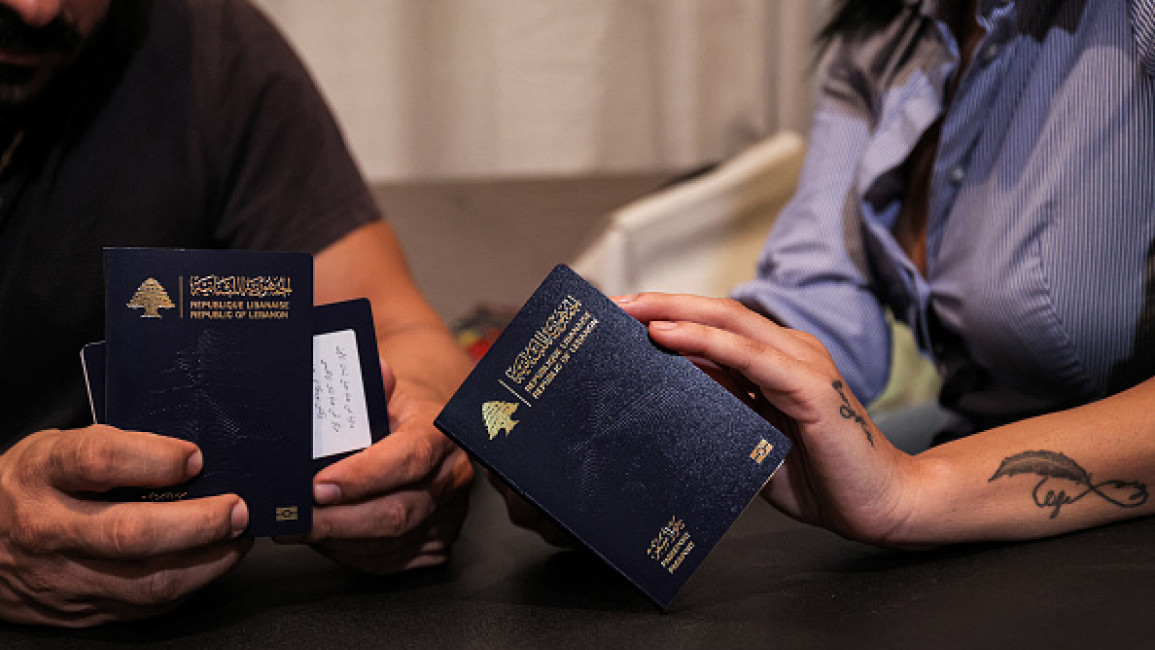
Beirut – Paula Astih — As thousands of public sector workers continue their strike in Lebanon, hundreds of the country’s newborns are being left undocumented. In Lebanon, civil workers have been on strike for more than a month and a half, exacerbating the crises experienced by the Lebanese on different levels. Because of the walkout, the Lebanese can’t obtain their documents to apply for travel visas and they are also unable to complete the process of buying and selling a car. Moreover, the work stoppage obstructs the entry of goods into Lebanon through the Beirut port, which threatens food security.
Since June 13, about 30,000 public workers have been carrying out an open strike to demand a correction of public sector salaries and an increase in the value of social benefits. The direct daily losses caused by the strike amount to about 12 billion Lebanese pounds, or about $400,000, according to the Minister of Labor in the caretaker government, Mustafa Bayram. Despite attempts to reach a settlement with the employees, many of them refuse returning to their duty stations. This reflected badly on families trying to register their newborns. Not only are newborns going unregistered, but also most, if not all, transactions of the civil services departments and others have come to a screeching halt.
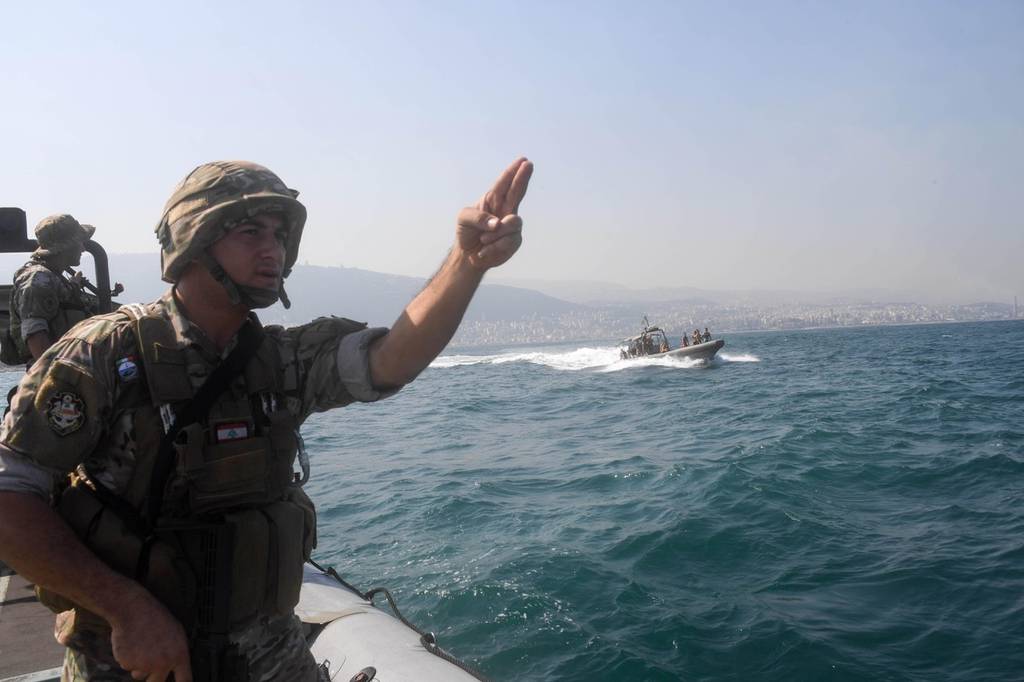
By Najia Houssari — arabnews.com — BEIRUT: Lebanon has strongly condemned Friday’s attack on Gaza by Israel. In a statement on Saturday, the Lebanese Ministry of Foreign Affairs called on the international community “to rapidly intervene to promptly stop these attacks, and call on Israel to abide by UN resolutions in order to preserve the safety of the Palestinian civilians who are badly suffering under Israel’s unjust blockade.” The developments in Gaza were being closely followed by Palestinian refugees in Lebanese camps. People in Lebanon are anxiously waiting to see what direction Israel’s military actions will take and whether they will be affected.
Reacting to the attacks on Gaza, Esmail Qaani, commander of Iran’s Islamic Revolutionary Guards Corps’ Quds Force, said: “Hezbollah plans to deal Israel a fatal blow and eradicate it completely at the appropriate time. “Israel’s security is decreasing,” he continued. “We will not stop fighting … and we will continue to stand firm.” Hesham Debsi, director of the Tatwir Center for Studies in Lebanon, told Arab News that Qaani’s statement “falls under the category of reaction rather than action.” “Every time Gaza is under attack from Israel, the Revolutionary Guards Corps launches its favorite slogan, stating that it will deal Israel a fatal blow at the appropriate time. We are still waiting for that moment. It is lame rhetoric made at the expense of Palestinian blood. No one believes it anymore. In fact, it serves the Israeli enemy.” Hezbollah praised “the solidarity of the Palestinian resistance factions” and emphasized the need to maintain a unified stance, which constitutes the main factor in triumphing over the enemy.”

سجعان قزي
@AzziSejean
هل كان يجوز أن تُعقدَ قِمّةٌ لبنانيّةٌ تَضمُّ، بعدَ طولِ فِراق، رئيسَ الجُمهوريّةِ ورئيسَ مجلسِ النوّاب ورئيسَ حكومةِ تصريفِ الأعمال لاستقبالِ موفَدٍ أميركيٍّ والتفاوضِ معه حولَ تفاصيلِ ترسيمِ الحدودِ البحريّةِ بين لبنان وإسرائيل؟ ماذا تَركتم أيّها الرؤساءُ “المِضْيافون” لاستقبالِ الملوكِ والرؤساء؟!
لكنَّ قِمّةَ الرؤساءِ الثلاثيّةَ كَشَفت أنَّ النظامَ اللبنانيَّ، منذ دستورِ الطائف، حوّلته الطبقةُ السياسيّةُ، بإشرافٍ سوريٍّ بدايةً، نِظامًا فدراليًّا هجينًا لا على أساسٍ طائفيٍّ فحَسب، بل على أساسٍ مَذهبيّ. ورغم ذلك، ينتقدُ فِدراليّو الطائف الفدراليّةَ ويَعتبرونها تقسيمًا. أجل، إنَّ الفدراليّةَ بالشكلِ الـمـُطبَّقةِ فيه منذ مطلَعِ التسعيناتِ هي تقسيمٌ دستوريٌّ من فوق وواقعيٌّ من تحت، بينما الفدراليّةُ النظاميّةُ الحضاريّةُ هي اتّحاد. وكلّما التقينا كبارَ الديبلوماسيّين المعتمَدين في لبنان يَعترفون بالواقعِ الفدراليِّ الغريب، ويَدعونَنا إمّا إلى الخروجِ منه أو إلى تطبيقهِ حسَبَ الأصولِ الدستوريّة. وما كان الموفدُ الأميركيُّ هوكشتاين “فَرضَ” لقاءَ الرؤساءِ الثلاثةِ معًا، إلا لأنّه تيقّنَ من وجودِ ثلاثِ سلطاتٍ على الأقلّ في لبنان، وكلُّ واحدةٍ تَملِك حقَّ الفيتو كأمرٍ واقعٍ فِدراليّ.
مهما يكن، يبقى أنَّ التقدّمَ الحاصلَ في مفاوضاتِ الحدودِ البحريّةِ بين الجانبين اللبنانيِّ والإسرائيليِّ بوِساطةٍ أميركيّةٍ كافٍ لاستئنافِ اجتماعاتِ الناقورة، لكنّه غيرُ كافٍ بعدُ لتوقيعِ الاتّفاقِ مع ملحقاتِه. وإذا كان لبنانُ وإسرائيل يُعطيان الأولويّةَ لاستخراجِ الغازِ على السجالِ الحادِّ حولَ الحدود، خصوصًا بعد تراجعِ لبنان إلى الخطّ 23، تَظلُّ الخَشيةُ أن تُخفيَ إسرائيلُ، كعادتِها، عُقدةَ رُبعِ الساعةِ الأخير.
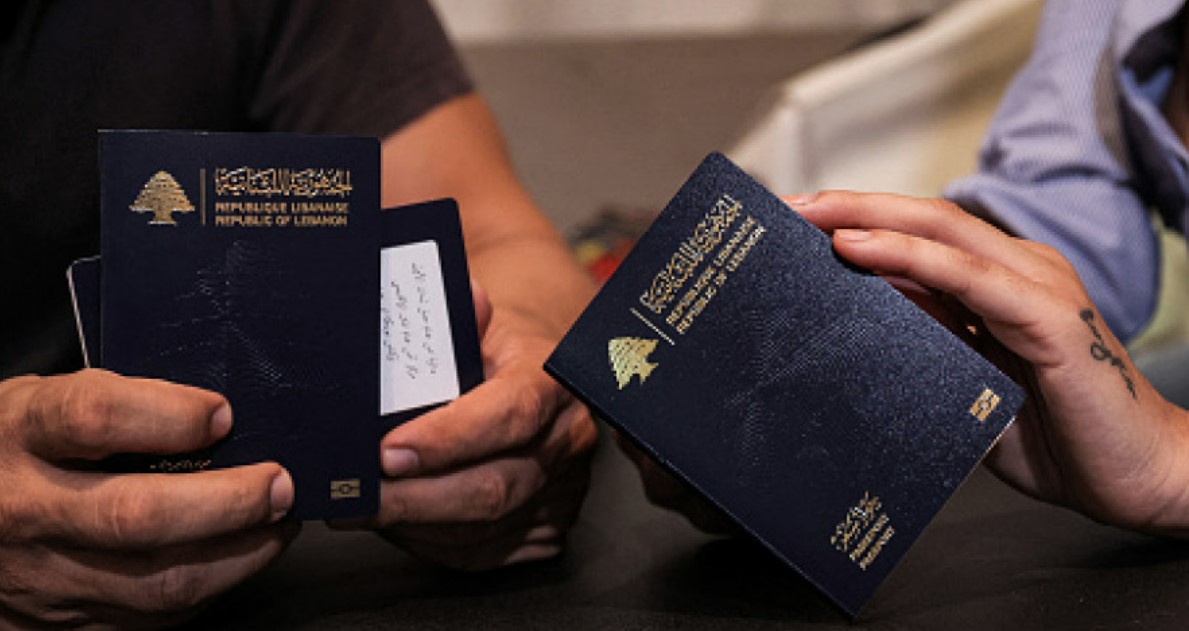
by english.alaraby.co.uk — Lebanon’s presidency has denied reports that leading politicians have pocketed hundreds of millions of dollars in Lebanese passport sales, including to individuals associated with the Syrian regime. French newspaper Libération reported Thursday that 4,000 Lebanese passports were on sale for as much as $102,000 each, with relatives of members of the Syrian regime among the prospective buyers. A decree for the naturalisation of 4,000 non-Lebanese was in the process of being issued, sources close to beneficiaries and actors in the passport sale operation told Libération.
The decree would have to be signed by Lebanon’s president, prime minister, and interior and finance ministers – all of whom could allegedly split the proceeds in passport sales, which could total as much as $407 million, according to the report. The “buyers” of the nationality could include relatives of senior Syrian regime figures looking to circumvent travel restrictions and sanctions on them and travel overseas more easily, it added. The media office of Lebanon President Michel Aoun rejected the claims. “What the French Liberation newspaper reported about ‘the sale’ of Lebanese passports to non-Lebanese is false news and has no basis,” the Lebanese Presidency tweeted. The revelations came as part of a Libération report on Lebanon two years after the Beirut port blast in which more than 200 people died. Endemic corruption has been blamed for the disaster, as well as the lack of accountability for those believed responsible for the blast.
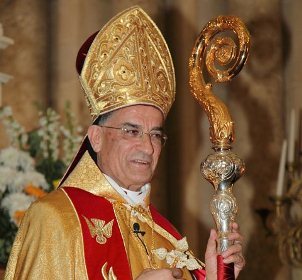
By Doreen Abi Raad • Catholic News Service • BEIRUT (CNS) — The 2020 Beirut port blast was the “crime of the century,” said Lebanese Cardinal Bechara Rai, Maronite patriarch. In a solemn Mass commemorating the second anniversary of the blast Aug. 4, the cardinal expressed frustration that no one had been held accountable for the explosion that left 224 dead, 7,000 injured — including 150 of whom are now disabled — and 300,000 homeless. Investigations regarding the blast have been paralyzed by legal and political wrangling. “We are today in the presence of two crimes, that of the explosion of the port and that of the paralysis of the investigation. This paralysis is no less scandalous than the explosion itself,” Cardinal Rai said in his homily at St. George Maronite Cathedral, one of some 70,000 buildings that suffered damages from the blast.
The Mass was attended by family members of the blast victims, the injured and those whose homes and livelihoods had been destroyed. Many family members, dressed in black, held photos of their deceased loved ones. One of the biggest non-nuclear explosions ever, the blast was caused by the detonation of a stockpile of ammonium nitrate improperly stored at the port for years. It was so powerful that buildings were affected more than 12 miles away, and the tremor was felt on the island of Cyprus, 165 miles across the Mediterranean Sea. “We raise a voice of anger against all officials, whoever they may be, wherever they may be and no matter their status, who are obstructing the investigation as if it were a trivial accident,” Cardinal Rai said. He noted that church officials repeatedly had “called for an international investigation … as the crime may be a crime against humanity in the event that it is found to be a premeditated act.” “The state does not have the right, on the one hand, to refuse an international investigation, and on the other, to block the national investigation,” Cardinal Rai said. “History will not forget all those who sought to erase the truth of the crime of the century and the right of the people to justice,” the cardinal said. “God will condemn those responsible.” “With this memorial service, we wish to add our voice to that of the families of the victims and martyrs, to the voice of the wounded and disabled, and to the voice of those affected,” he said.



